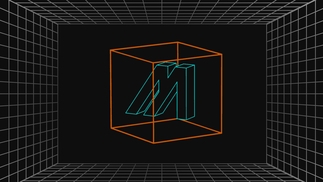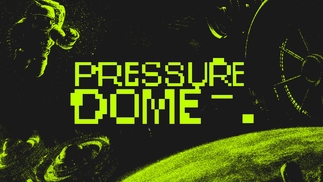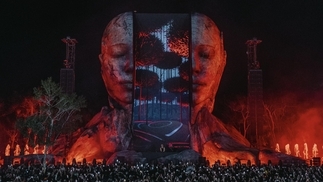The Sound Of: Infinite Machine

Dealing in experimental sci-fi soundscapes as much as it does club bangers, Mexico City’s Infinite Machine has spent a decade at the cutting edge of dance music futurism. Alongside a mix of tracks from its catalogue by Galtier, founder Charlie Juarez discusses the label’s revered alumni, digital interconnectedness, and how it all started with screamo
“I think I could see myself as the underground Skrillex,” jokes Charlie Juarez, founder of Mexico City-based label Infinite Machine, when we get in contact to celebrate the label’s impressive milestone of a decade of releases. We’re talking about the pair’s shared past in screamo before moving into electronic music, but it turns out the similarities were once cosmetic too. “Before I cut my very long hair some time ago, around the time I started wearing glasses, there were people who told me that I looked like him, at least physically. Although,” he adds, “they didn’t really know much about my work.”
As the recently released ‘Infinite Machine 10 Years Compilation’ shows, Charlie has kept the raw DIY spirit of the scene he started in alive, using the internet to build a network of often previously unknown artists from across the globe. It’s given Infinite Machine an energetic club-ready sound that’s continually metamorphosing into ever more visceral forms, traversing tempos and continents.
So you’ll find the gabber kicks and vogue vocals of El irreal Veintiuno’s ‘Dogma’ next to the industrial emo hip-hop of ‘Reflejo’, and mutant dancehall from Galtier (the relatably titled ‘My Face Is A Mess’) trading blows with Daniel Ruane’s ‘ZZZZZ’ — what you imagine Autechre might sound like if they went full club.
A giant milestone for any label, it’s part of an even larger personal journey, explains Charlie, who says it’s actually 18 years since he decided to dedicate his life entirely to music. “I knew I wanted this to go on forever, but I honestly didn’t know that I would end up running an electronic music label and that it was going to last for so long.”
He discovered the screamo scene in 2002, beginning to play bass in 2004, which is also when he started his first band. Pretty much Mexico’s sole standard bearer for screamo, they ended up sharing bills with metal and hardcore bands — a blending of genres that has seeped into the DNA of Infinite Machine. “I was so involved in this scene that at one point people considered me the ambassador of screamo in Mexico,” laughs Charlie. “It was then that I learned to use the internet as a means of communication to connect with people in the United States, Europe and Japan.” This proved another foundation for the creation of the community that has become Infinite Machine.
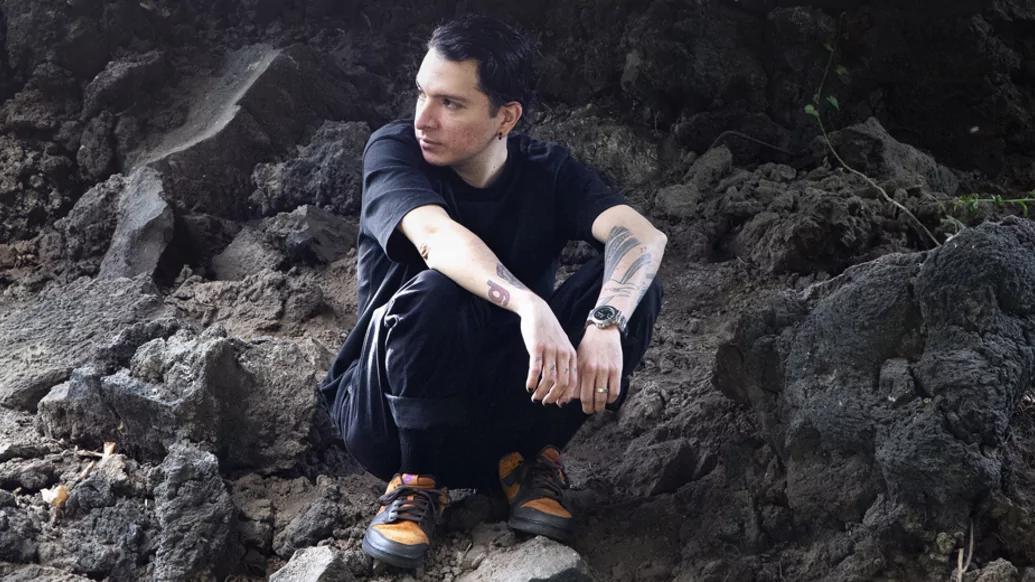
It was relocating from Mexico City to Montréal, Canada, where he lived for four years before moving back, that helped speed up his break from the screamo scene. During this transitional period he set up Infinite Machine. Listen to the first few releases and you hear the same broken beat influences that are present today. But there’s a distinct, smoother melodic influence too — as shown by one of the label’s earliest signings, Bwana (today working under the name Nathan Micay).
“At that time, post-dubstep and so-called ‘future garage’ were some of the genres that I came across as a result of getting to know UK dubstep, which was my first real approach to electronic music in 2009,” explains Charlie, as we discuss how the influence of this era is imprinted on the label’s early days. In Montréal he learned “to do things in a very professional way, and at the same time I learned to take things more lightly”.
But it was a return to Mexico City that really began to crystallise the sound Infinite Machine now has. “I had forgotten for a while that life is difficult over here, it’s a lot more raw and brutal,” he explains. “The spirit and sound of the label changed completely because of this. It became harder and more punk.”
There are various people who helped things keep moving: Teo Zamudio, who designed the logo, Charlie’s friend Rafa, who now runs another label, xenonyms, and some of the label’s signings, such as Argentinian producer Bungalovv, and Benfika, who designed the artwork for various recent releases. It’s producer Liar, however, aka Alin-Mihai Ceauşelu, who he says was instrumental in pushing the label in a darker direction, as well as mastering tracks and writing press releases.
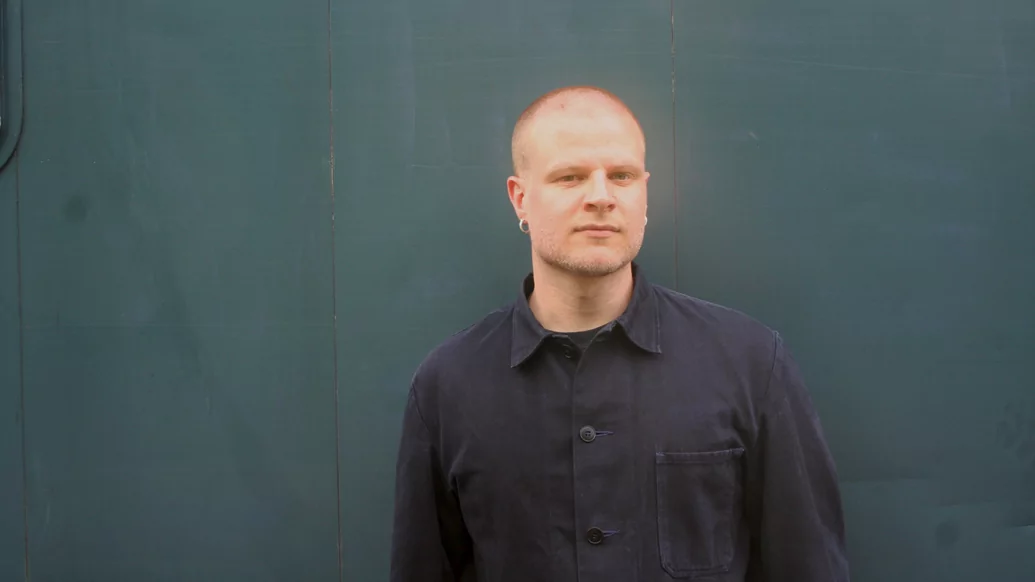
Liar, who runs Tessier-Ashpool Recordings and Drastic Arts, remains one of Infinite Machine’s most important alumni, with Charlie highlighting Berlin-based Ziúr, Bristol’s Mun Sing (aka Harry Wright, one half of Giant Swan), Cologne-based Swan Meat, and Shanghai’s Laughing Ears as some of those who’ve made waves more recently. There’s also Galtier (pictured above), founder of Nostro Hood System and a pioneer of the hard drum sound, whose recent debut album on Infinite Machine, ‘Pulchra Es Elementis’, Charlie says “is definitely one of our essential releases”, its blend of otherworldly ambient, glitchy sound design and rough ‘n’ ready riddims encapsulating the label’s futurism.
“For me, it’s always been important to be in constant evolution,” Charlie says of how the label has continued to move and grow, adding that its shape-shifting aesthetic “is partly that we’re in an interconnected world. At the same time, it’s my curiosity and desire to find new things in the world.”
His own experiences trying to make it as an artist, both in the past and now, under the moniker WOLF, also inform why he’s worked with some many emerging names. Many he’s yet to meet in the flesh, their relationship built entirely in the digital realm, but he believes he understands what kind of struggles they face, which leads to opening up about a wider issue in electronic music and the world in general.
“If someone is going through difficult times and they need to talk, don’t hesitate to contact me,” he says. “In recent years I’ve been struggling a lot to improve my mental health and I’m very aware that it’s something that many people suffer from. This industry is difficult and many times we feel like giving up and leaving everything behind. Don’t do it and keep going!”
Infinite Machine is a testament to Charlie’s own resilience and persistence. If restrictions allow, 2022 will see the label tour North America and Europe. “I want to focus more on the IRL experience,” he tells us. What this means, probably, is a slowing down on the release front. For his own part, he hopes to get back into production, with the aim to release a new album. Reprising the clothing range the label put out in 2019, his friend Oscar Rubio is also working on designs for a 10th-anniversary t-shirt, which previews a new drop next year.
“The most remarkable lesson I’ve learned so far is that I need to be responsible,” says Charlie, reflecting on how helming Infinite Machine has shaped his own destiny. “I need to have both feet on the ground. I need to know how to relate and empathise with people. And, above all, I need to connect a lot more with myself.”
Listen to a mix of track's from the Infinite Machine catalogue, mixed by Galtier, below
Tracklist:
Benfika ‘Ríos de Azoth’
Laughing Ears ‘Flickering Shadows’
Yilan & Ren ‘Niffler’
Iydes ‘£Worship’
Yilan ‘Static Void’
Ziúr ‘Lilith Ft. RIN (Air Max '97 Remix)’
Mun Sing ‘Emerald’
Iydes ‘Skin’
Xiao Quan ‘Chakram Intel Bulletins’
Beaka ‘InDisguise’
Aphix ‘Chemtrails’
Effy ‘Move (Troy Gunner Remix)’
Lokane ‘Eastway Project’
Tomás Urquieta ‘Anatomía (M.E.S.H. Remix)’
Yilan ‘Regression (Amazondotcom Remix)’
Bungalovv ‘Acid Arrows’
XS ‘Rhoda’
Galtier ‘Phantasiai’
Avernian ‘Malleable’
Alfred English ‘Piston’
Bonebrokk ‘The Astral Catalyst (Surgeon Remix)’
Galtier ‘Koll’
Duswunder ‘Black Bile’
Daniel Ruane ‘Lapse Reflection’
Lil Asaf & MFKZT ‘Thabat’


